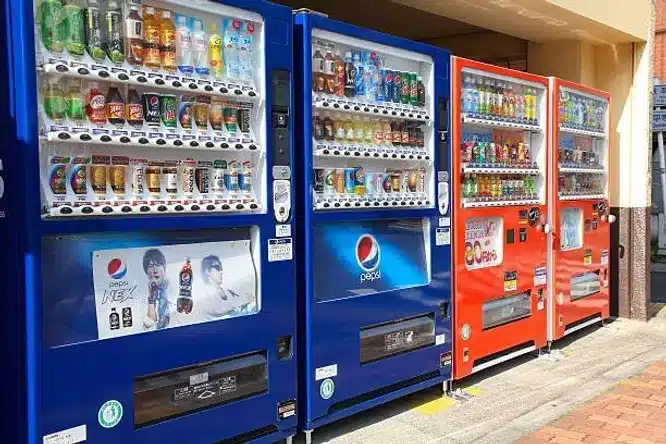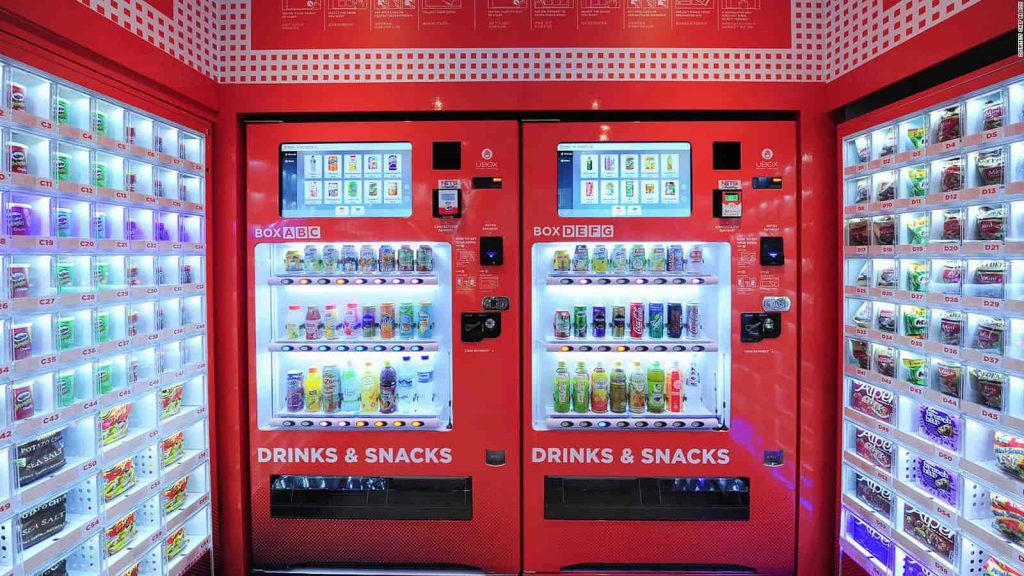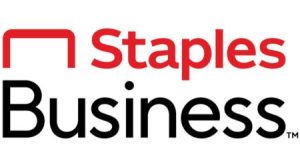Have you ever seen a vending machine business for sale and wondered if it’s a smart investment? Many people think vending machines are easy money—you just place them, fill them with snacks or drinks, and collect cash. While that can be true, there are important things to check before buying.
This guide will break down everything in simple language so that even if you’re only 15, you’ll understand the steps, risks, and rewards. If you’re serious about becoming an entrepreneur, learning about the vending machine industry is a great place to start.

Why People Buy a Vending Machine Business
Buying a vending machine business for sale is popular because:
-
Low startup costs – compared to opening a restaurant or store.
-
Flexible schedule – you can refill machines on your own time.
-
Passive income – machines work 24/7, even when you sleep.
-
Scalability – you can start with a few machines and grow.
But just because it sounds simple doesn’t mean every deal is good. You need to look closely before investing.
What Exactly Is a Vending Machine Business?
A vending machine business involves owning machines that sell products automatically. They can sell:
-
Snacks like chips, cookies, and candy
-
Drinks like soda, water, and juice
-
Coffee and hot beverages
-
Healthier options like granola bars or fruit snacks
-
Even non-food items like electronics, toiletries, or PPE
When you see a vending machine business for sale, it usually includes:
-
The machines themselves
-
Contracts or agreements with property owners for machine placement
-
Inventory (snacks and drinks already stocked)
-
Sometimes even customer routes
Key Things to Check Before Buying
If you find a vending machine business for sale, here’s what you should always check:
1. Location, Location, Location
The biggest factor in success is where the machines are placed. A machine in a busy school, hospital, or office building will earn much more than one sitting in a quiet hallway.
-
Ask: How much foot traffic does this location have?
-
Check: Is the location safe and secure?
-
Confirm: Do you have permission to keep the machine there?
2. Machine Condition
Not all machines are the same. Older machines may break down often or not accept modern payments like cards or mobile wallets.
-
Look for: Machines that are clean, modern, and in good working order.
-
Test: Do they accept coins, bills, and cards?
-
Ask: How often do repairs need to be done?
3. Sales Records
A seller should be able to show sales history. If they can’t, that’s a red flag.
-
Check: Monthly income reports.
-
Compare: Are sales consistent or seasonal?
-
Understand: How much is gross profit vs. expenses?
4. Contracts and Agreements
When buying a vending machine business for sale, you might not automatically get rights to the locations. Sometimes property owners must approve the transfer.
-
Ask: Does the contract transfer to you as the new owner?
-
Check: Are there commissions owed to the property owner? (Many locations take 10–20% of sales.)
5. Operating Costs
Running machines costs money too.
-
Inventory (snacks and drinks)
-
Gas and time to restock
-
Repair costs
-
Rent or commissions to the building owner
6. Profit Margins
Snacks may cost you $0.50 each but sell for $1.50. Drinks may cost $0.70 but sell for $2. This profit margin is what makes vending machines attractive.
-
Check if the seller’s pricing is fair.
-
See if there’s room to raise prices without losing customers.
Red Flags to Avoid
If you’re considering a vending machine business for sale, watch out for:
-
Machines in low-traffic areas (small offices, rural spots).
-
No proof of income.
-
Machines that are old or constantly breaking.
-
Sellers who rush you into the deal.
How Much Does a Vending Machine Business Cost?
Prices vary widely. A small business with 2–3 machines may cost $5,000–$10,000. Larger routes with 20–30 machines could cost $50,000 or more.
Always compare the cost with the income history. A machine that earns $300 per month is more valuable than one that makes only $30.
Is Buying Better Than Starting Fresh?
Sometimes buying a vending machine business for sale is smart because:
-
You skip the hard work of finding locations.
-
Machines may already be profitable.
But sometimes starting fresh is better if:
-
The machines being sold are old.
-
The locations are weak.
-
The seller wants too much money.
Steps to Take Before Buying
-
Visit every machine location in person.
-
Ask for 6–12 months of sales reports.
-
Inspect machines for condition.
-
Read contracts carefully.
-
Do the math—calculate your profit after expenses.
-
Negotiate the price.
-
Only buy if you see steady profit potential.
Growth Tips After Buying
Once you own a vending machine business for sale, you can grow it by:
-
Adding more machines in high-traffic spots.
-
Offering healthier options (many schools require this).
-
Upgrading to smart machines with card readers.
-
Testing unique products like electronics or beauty items.
Pros and Cons
Pros:
-
Low maintenance once set up
-
Potential passive income
-
Flexible work hours
-
Can grow at your own pace
Cons:
-
Risk of bad locations
-
Machines break down sometimes
-
Competition from other sellers
-
Cash flow depends on customer demand
Should You Buy a Vending Machine Business for Sale?
The answer depends on your research. If the machines are in great locations, well-maintained, and showing steady income, it could be a fantastic investment. But if the seller can’t show proof of profits, it might not be worth the risk.
Remember: In business, the smartest buyers are the ones who do their homework before spending money.
Buying a vending machine business for sale can be a great first step into entrepreneurship. It’s affordable, flexible, and scalable. But like any business, success comes from careful planning.
Check the machines, review contracts, study the sales numbers, and make sure the locations are busy enough to bring in steady customers. If you follow these steps, you’ll avoid costly mistakes and may find yourself running a business that pays you even while you sleep.






